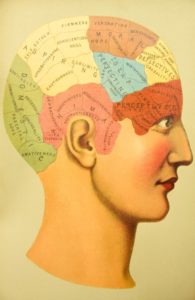What is a Teenage Brain? A teenage brain is a developing brain where millions of connections are in need of pruning, a nutrient taxing process that can be optimized with targeted nutrition.
MindCheck provides weekly in-depth information on the orthomolecular approach to coping with mood, behavior and psychotic disorders. This series by Dr. Ray Pataracchia N.D. is endorsed by the Mindful Network – ‘A Better Future for Children’s Mental Health’.
The Teenage Brain
The Teenage Brain: A Work in Progress
Brain cell pruning provides a means of learning and developing parts of the brain involved not only in knowledge accumulation, but also in the control of mood, behavior, and socialization.
Pruning means that some ‘immature’ neuron connections are removed as others make way with new ‘more mature’ connections that tie in all kinds of information and contexts (i.e. the arts, intuition, music, sports, academia, nature, socialization, …).
The quality of ‘maturing’ connections is dependent on life experiences.
Life experiences derived from a healthy supporting home environment is a good start to maturation. Ideally if ‘maturity’ is to be achieved optimally, a teen should dedicate a good portion of time to sports, music, academics, nature, and socialization; these activities will go a long way in terms of maturing the right connections.
Nutritional Support for the Developing Teen Brain
Nutritional compromise in a developing brain can go a long way to deter maturation. The brain chemical array that is present in this season of pruning is important to the whole process; a teens’ brain needs to have its cell apparatuses all working optimally to produce abundant connections and adequate levels of chemical neurotransmitters.
For some teens correcting nutrient imbalance may be as simple as providing a good multi, while for other teens there may be a call for a targeted approach to determine the individual ‘brain terrain’ deficiencies of the teen in question and then fine tune the nourishment aspect to match the imbalance.
Brain Terrain in this context may differ from one teen to another.
Types of biochemical imbalance that play a role in brain development likely fall under one or more of fifteen common syndromes.
Some common teen imbalances described below include iron deficiency, protein deficiency, essential fatty acid deficiency, and zinc-copper imbalance.
Iron deficiency
Iron deficiency is a very common deficiency syndrome that enables oxygen carriage to brain cells so they can make energy molecules and produce brain communication molecules called neurotransmitters. Iron is a building block for thyroid hormone, an important hormone that provides the green light for brain cells to do what they do best, make neurotransmitters and other products used in brain cell communication. Young women have a greater demand for iron due to blood loss during menstrual periods.
Protein, Protein, Protein
Teens often have a carbohydrate dominant breakfasts which start the day off wrong; the body according to Oriental Medicine, is most receptive to protein early in the day between 7-9 a.m.
High quality protein is imperative to brain chemical manufacture. The vast majority of neurotransmitters are proteins, so it follows that adequate high quality protein intake is key. In the developing teen brain, animal meat is the highest quality protein available and it provides the basic building blocks for neurotransmitter formation.
Essential Fats are Essential to Teens
Studies show that frontal lobe development during teenage years is a very important part of brain ‘maturation’. Brain cells have an insulated coating called myelin and the formation of this fatty sheath is imperative to good mental health in teens. Teens with greater demand for myelination require adequate building block fatty acids.
Brain cell pruning also puts great demand on the brain. Pruning similarly requires that you have the building blocks to build healthy nerve cell membranes for optimal cell-cell communication. The main components of this membrane are: 1) proteins which are the building blocks of brain receptors; and 2) essential fats which anchor these receptors appropriately in a membrane position that is ideal for efficient cell-cell communication.
DHA Essential Fats have a specific role in developing children and teens.
Zinc-Copper Imbalance
Zinc and copper balance are intimately involved in brain neurotransmitter production and regulation. This is especially important in teens because they have a dopamine dominant requirement that demands balance between of zinc and copper which are oppositional nutrients involved in production and regulation of dopamine and other master neurotransmitters of the brain. Copper is more directly involved in catecholamine production which includes the production of dopamine, nor-adrenaline, and adrenaline (adrenaline is also called epinephrine).
Dopamine floods the brain of a teen. This neurotransmitter is involved in intense pleasure, sensitivity, movement, and alertness. The combination of dopamine related behaviors can be described as a ‘risk-taking’ profile.
The body can figure out how much dopamine is needed for this process but from a nutrient perspective the ‘goodies’ — a term that I use to describe the entire array of neurotransmitters including serotonin, the feel good opposing neurotransmitter to dopamine, adrenaline, and noradrenaline — need to be available not only in sufficient amounts but also, in balance. Balanced neurotransmitter systems are healthy neurotransmitter systems.
An imbalance of zinc and copper can be addressed with nutrient nourishing orthomolecular approaches; zinc-copper imbalance is associated with mental health conditions including schizophrenia, anxiety/depression, ADD, ADHD, OCD, and learning compromise.
Final Note on Sleeping Teens
Think twice before you rouse your sleeping teen. Sleep is a restoration time for brain cells. In teens, sleep helps set brain chemical pathways. This may require longer sleep times to allow efficient pruning at a restorative level.

